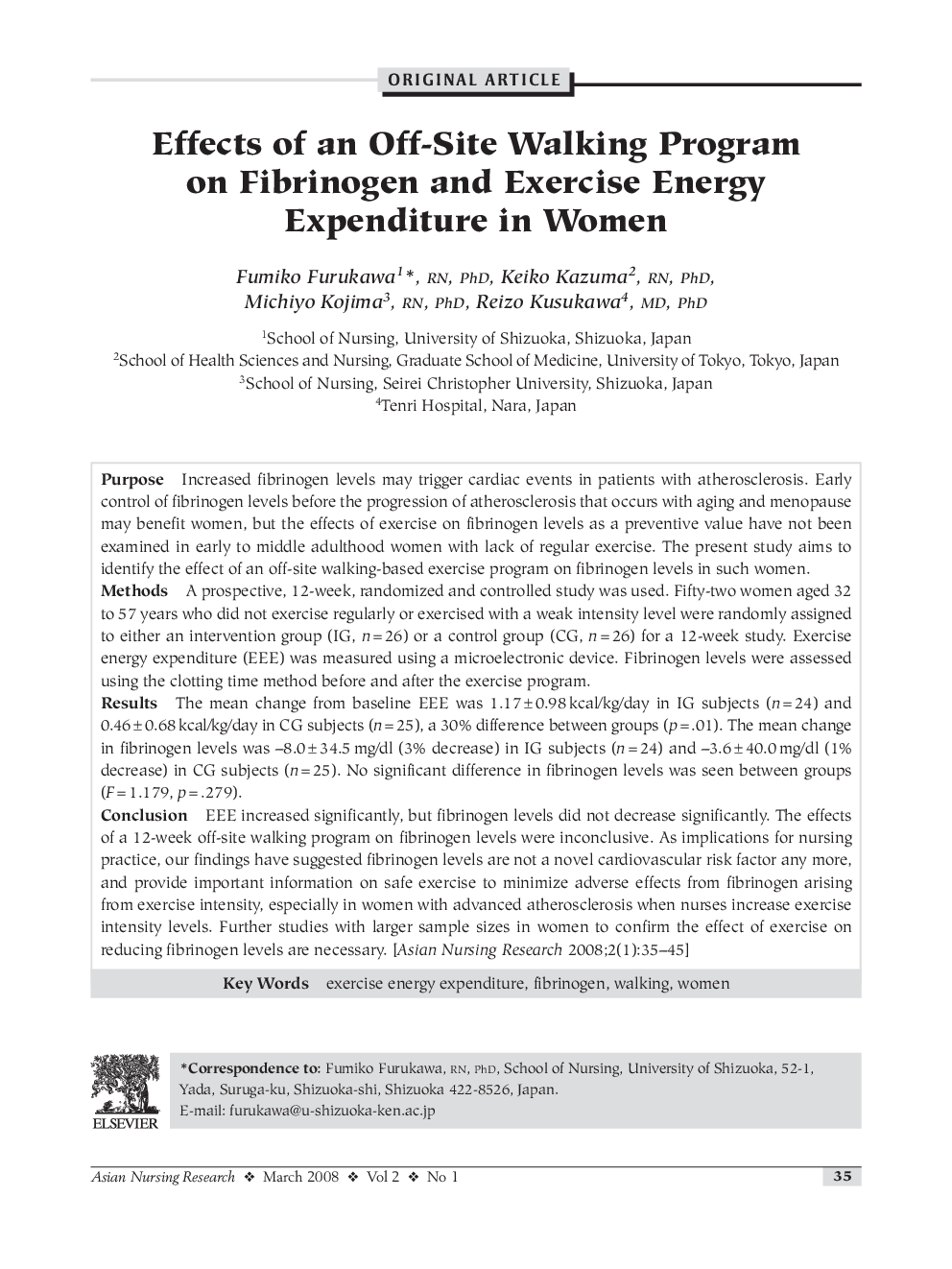| Article ID | Journal | Published Year | Pages | File Type |
|---|---|---|---|---|
| 2645582 | Asian Nursing Research | 2008 | 11 Pages |
PurposeIncreased fibrinogen levels may trigger cardiac events in patients with atherosclerosis. Early control of fibrinogen levels before the progression of atherosclerosis that occurs with aging and menopause may benefit women, but the effects of exercise on fibrinogen levels as a preventive value have not been examined in early to middle adulthood women with lack of regular exercise. The present study aims to identify the effect of an off-site walking-based exercise program on fibrinogen levels in such women.MethodsA prospective, 12-week, randomized and controlled study was used. Fifty-two women aged 32 to 57 years who did not exercise regularly or exercised with a weak intensity level were randomly assigned to either an intervention group (IG, n = 26) or a control group (CG, n = 26) for a 12-week study. Exercise energy expenditure (EEE) was measured using a microelectronic device. Fibrinogen levels were assessed using the clotting time method before and after the exercise program.ResultsThe mean change from baseline EEE was 1.17 ± 0.98 kcal/kg/day in IG subjects (n = 24) and 0.46 ± 0.68 kcal/kg/day in CG subjects (n = 25), a 30% difference between groups (p = .01). The mean change in fibrinogen levels was −8.0 ± 34.5 mg/dl (3% decrease) in IG subjects (n = 24) and −3.6 ± 40.0 mg/dl (1% decrease) in CG subjects (n = 25). No significant difference in fibrinogen levels was seen between groups (F = 1.179, p = .279).ConclusionEEE increased significantly, but fibrinogen levels did not decrease significantly. The effects of a 12-week off-site walking program on fibrinogen levels were inconclusive. As implications for nursing practice, our findings have suggested fibrinogen levels are not a novel cardiovascular risk factor any more, and provide important information on safe exercise to minimize adverse effects from fibrinogen arising from exercise intensity, especially in women with advanced atherosclerosis when nurses increase exercise intensity levels. Further studies with larger sample sizes in women to confirm the effect of exercise on reducing fibrinogen levels are necessary.
